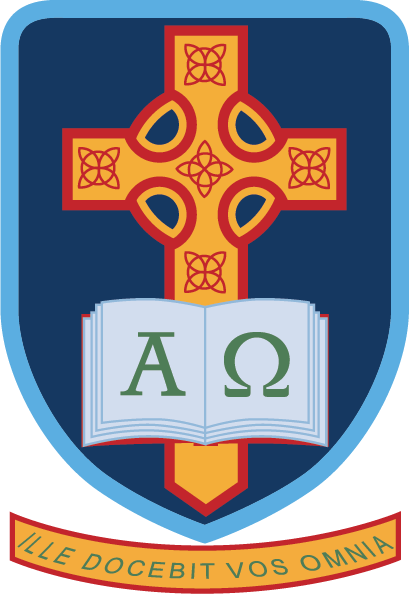
RE
Overview
Religious Studies offers an academic approach to the study of religion. It enables students to develop an insight into religion, faith and practice central to an understanding of the modern world. Religious Studies helps equip students with many of the skills needed in Further Education and the workplace. Students develop critical evaluation skills and the ability to construct logical and convincing arguments.
RE
Team
- HOD: Mrs S Canavan
- Ass HOD: Mrs E Devlin
- Mrs L Murray
- Mr S Grew
- Mr K Conroy
- Mrs K Mullin
GCSE
Exam Board: CCEA
COURSE CONTENT:
YEAR 11: Roman Catholicism
- The birth of the Christian Church and Christianity in Ireland
- Church government
- Worship in the Catholic Church
- Sacraments in the Catholic Church
- The role of the church in contemporary society
YEAR 12: Christian Ethics
- Personal and family issues
- Matters of life and death
- Developments in bioethics
- Contemporary issues in Christianity
- Modern Warfare
A LEVEL
AS 2 – An Introduction to Acts of the Apostles –
This unit explores the beginnings of the Church of the New Testament, tracing the journey of the gospel. In addition, candidates are required to explore the relationship of Acts of the Apostles to other aspects of human experience.
AS 5 – The Origins of the Celtic Church in Ireland and the Beginnings of its Missionary Outreach
This unit explores pre-Patrician Ireland and the arrival of Christianity, the mission and writings of Patrick and the introduction of monasticism. In addition, at A/S Level candidates are required to explore the relationship of this unit to other aspects of human experience.
A2 2 – A Study of Acts, Galatians and 1 Corinthians.
This unit develops the material covered in Year 13. It explores Paul’s work as a pastor and preacher and traces Paul’s journey to Rome. Students are also required to explore the relationship of Acts, Galatians and 1 Corinthians to their other unit of study (A2 5) and to other aspects of human experience.
A2 5 – A Study of the Development and Impact of the Celtic Church in the 5th, 6th and 7th Centuries.
This unit explores, in more detail, the development of the Celtic Church in Ireland and critically examines the impact of that development on the Church in Ireland, Britain and the Continent. Students are also required to explore the relationship of the Celtic Church to their other unit of study (A2 2) and to other aspects of human experience.
